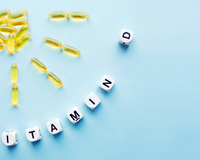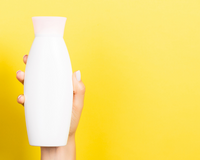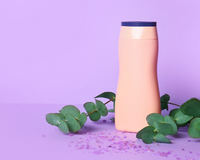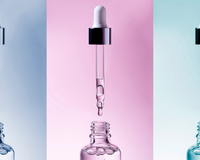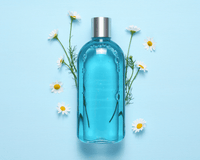Skin Care
Skin care is more than just wiping it down and putting lotion on it. It also means having a healthy diet, getting enough sleep and exercise, and controlling your stress level. Your unique skin type may also dictate what other treatments you should use, like exfoliating scrubs or moisturizing masks, as well.
You should wash your face twice a day to keep it oil-free, improve your complexion, and keep your skin from getting greasy. Wash your face in the morning and at night. You should use lukewarm water and a facial cleanser that is right for your skin type to clean your face. The best way to clean your face is to use clean hands, a washcloth, or a soft sponge.
How To Build A Skin Care Routine?
You can make your own skin care treatments with things you already have in your kitchen or garden. As well as or better than store-bought remedies, at-home remedies can be just as good or better. Making them yourself can also save you money. It's important to try and test different recipes to find the best one for you.
Then, figure out what kind of skin you have. Most people have oily, dry, mixed, or normal skin. For very oily or dry skin, look at general guidelines on how to care for oily skin and dry skin.
Test your skin to see if it is sensitive to harsher ingredients. In this case, your skin already reacts badly when it comes into contact with the sun, other skin products, or perfume. Determine what your skin's problems are. These could be wrinkles, acne, dull skin, or dark spots on the skin.
If you want to spend a lot of time and effort on your skin, think about how much. Full skin care includes an exfoliator, cleanser, toner, moisturizer, and spot treatments. You don't have to use all five, but you should. Most skin care products clean or moisturize your skin, but there are some that don't do either.
3 drops of tea tree oil that have been diluted to 5% to 15% should be put on your problem area every day to help. Keep your skin moisturized with 6 drops of jojoba oil. This won't make your skin acne-prone. Do this three times a day. Lemon juice has a lot of acid in it, which kills a lot of bacteria that cause acne.
Moisturize Your Skin Everyday
It's time to choose a moisturizer for your face every day. This could be an oil, aloe vera gel, or any other moisturizer that doesn't hurt your skin if you leave it on for more than 15 minutes.
Because oil dissolves other oils, it may seem weird to use a moisturizer that has oil in it when you have acne. Sebum is an oil, and oil dissolves other oils. Because oil-based moisturizers are hygroscopic, they can hold water and keep your skin moisturized.
All-natural moisturizers can be bought, but you can't make your own at home. Ingredients: Take all of the ingredients you have, and mix them together to make your own skin masks, scrub and moisturizer. Some common masks and scrubs are shown below:
- 1 tablespoon (14.8 ml) lemon juice and 1 egg white
- 2 tablespoons (29.6 ml) of yogurt and a ripe avocado
Take it slow when you start a new diet. Try your new routine for one day of the week, then two, then three, until you get used to it. In some cases, you might only need to use your face mask once a week, or scrub twice a week. Take a look at what balance works best for you and try to find it.
Wash Your Face
It's important to wash your skin once a day and moisturize right after while your skin is still wet. If your skin is dry or irritated, use warm water instead of cold water. When you clean, move your body with light and gentle strokes. This may help you avoid wrinkles and won't hurt your skin.Before you go to bed, moisturize your skin unless you have oily skin. This way, your skin can get moisture while you sleep. This is especially important if you have dry skin.
Make sure you don't use hot water when you are taking a bath or shower. Instead, use lukewarm water instead. People who use hot water can feel good, but it can also strip their skin of its natural oils. This can cause dry, flaky skin.
In order to keep your body clean and moisturized, use a body wash that has natural oils in it. These oils could be almond, coconut, or olive oil. With a towel, gently pat your skin dry until it's clean and dry. When you wash your face, don't forget to wash the skin on your body too. Leave your skin a little damp. This way, your skin can get rid of the extra moisture and rehydrate itself.
Apply A Lotion
The best time to use lotion or moisturizer is when your skin is still wet. Face moisturizers and creams should be used on your face, and lotions or body butter should be used on your whole body, too. Change the type of moisturizer or lotion you use based on the season, so that your skin stays healthy. You should use a heavier one in the winter and a lighter one in the summer.
Look into using a moisturizer that has SPF in it to keep your skin safe from the sun. All types of skin can benefit from moisturizer, even if they're oily! Choose a moisturizer that isn't too heavy or thick, like a gel-based one for oily skin.
Scrub Your Skin
Once a week, scrub your skin. This will help you get rid of those dead skin cells and make your skin feel soft and silky. You use scrubs, loofahs, and sponges to get rid of dead skin. You should use a gentler exfoliator on your face than on the rest of your body, so make sure you do that. Remember that the skin on your face is more fragile than the skin on your arms and legs.
Choose exfoliating scrubs with care. The bigger the grains, the rougher the scrub will be. If your skin is very sensitive, don't use scrubs made with walnut shells because they could hurt it. Do this every day if your skin is dry. Be gentle with yourself, and always moisturize after you're done with it.


